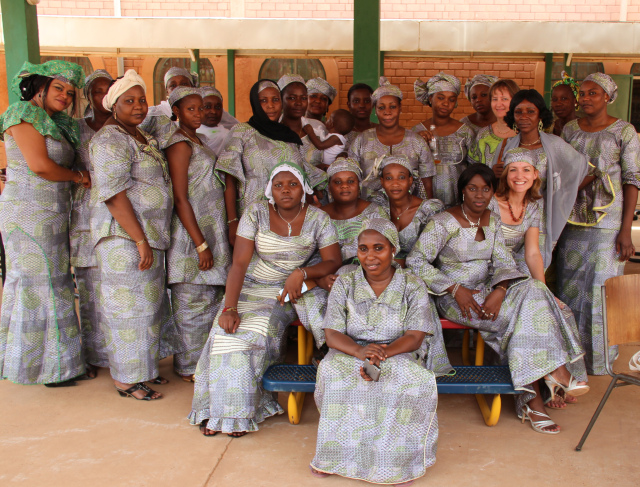International Women’s Day!
To celebrate and honour this special day, we want to share a story about the women at CURE Niger.
The Women’s Day or “Journée de la femme nigérienne” was created in 1992, when Nigerien women from all over the country went on a march for better conditions of life.
Being a woman in Niger is so much harder than in a western country. Niger is the one of the least developed countries in the world. A lot of people don’t have access to a high level of education, and ancestral beliefs are still strong. Men are allowed to have several spouses, dividing the resources of the family even further, so women often have to face some hard conditions in their homes.
 When a girl is born in Niger, most of her childhood is spent learning how to help her mother at home. It is extremely rare that a girl stays in school for more than two or three years! It is viewed that the most important lesson, is that the daughter needs to know how to run and care for her home. Their life is then planned out that they get married and become mothers. The birth rate in Niger is the highest of the world, with almost 7 children per woman.
When a girl is born in Niger, most of her childhood is spent learning how to help her mother at home. It is extremely rare that a girl stays in school for more than two or three years! It is viewed that the most important lesson, is that the daughter needs to know how to run and care for her home. Their life is then planned out that they get married and become mothers. The birth rate in Niger is the highest of the world, with almost 7 children per woman.
Women can ask for a divorce but it’s not very common. A woman cannot live alone, so her only options would be going back to live with her parents or remarry. If the couple have any children, then the mother is separated from them and they have to stay with the father because he’s the one who provides the food. The woman is under the authority of her father or of her husband. That’s the only way.
 It seems so far from the western culture that we live in, but a lot of women in Niger will tell you that this traditional way of life is their security. They know who they are as women, and they know their role. They are the ones who take care of the home and assist the man.
It seems so far from the western culture that we live in, but a lot of women in Niger will tell you that this traditional way of life is their security. They know who they are as women, and they know their role. They are the ones who take care of the home and assist the man.
At CURE Niger, every year they celebrate Women’s Day by choosing a pagne (a colourful piece of material). The women at the hospital collect money that they have saved up together and buy a pagne for every staff member, which is used create an outfit.

Each women puts their own style and creative personality in their design. It really brings home the message that we are all cut from the same cloth, but all cut differently. A wonderful expression of solidarity and sisterhood, without sacrificing any individual sense of identity (or style!).

To all of the women who work at CURE (and everywhere else for that matter)- thank you for everything you do!

